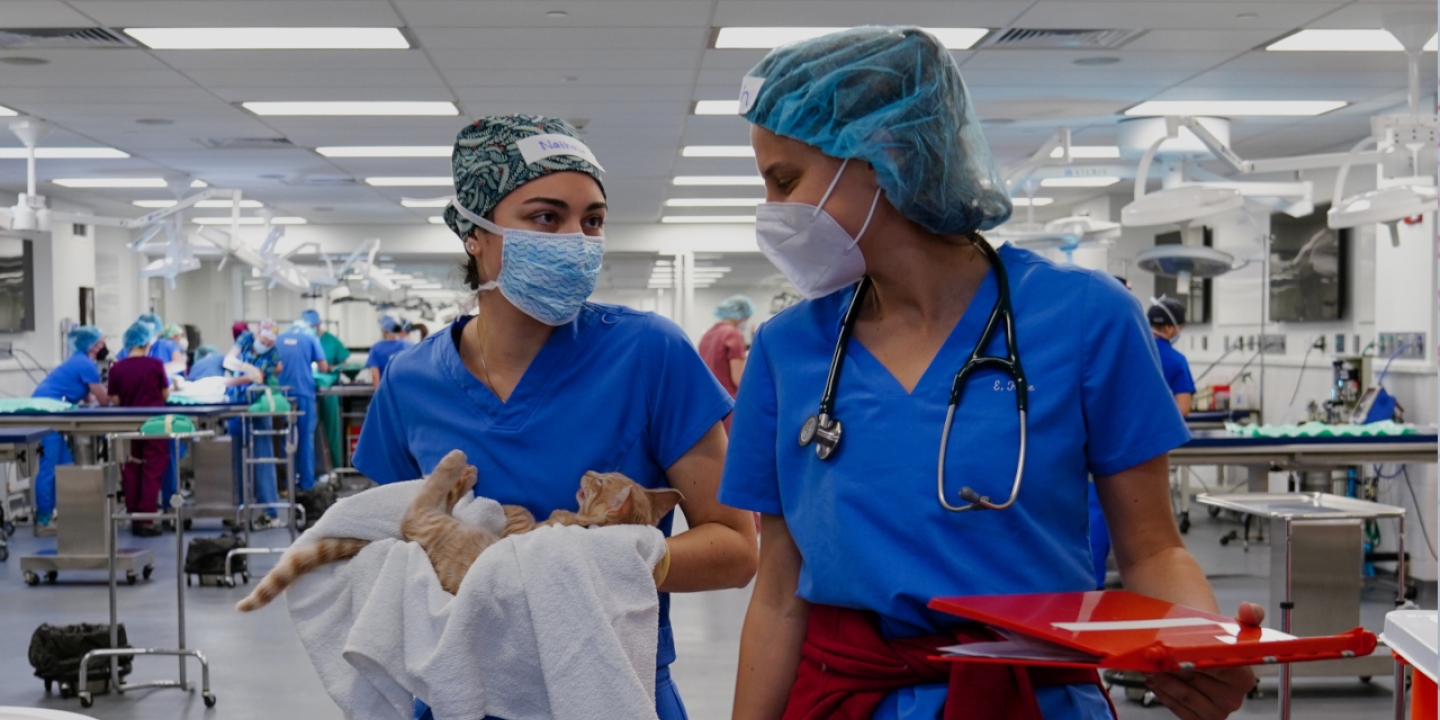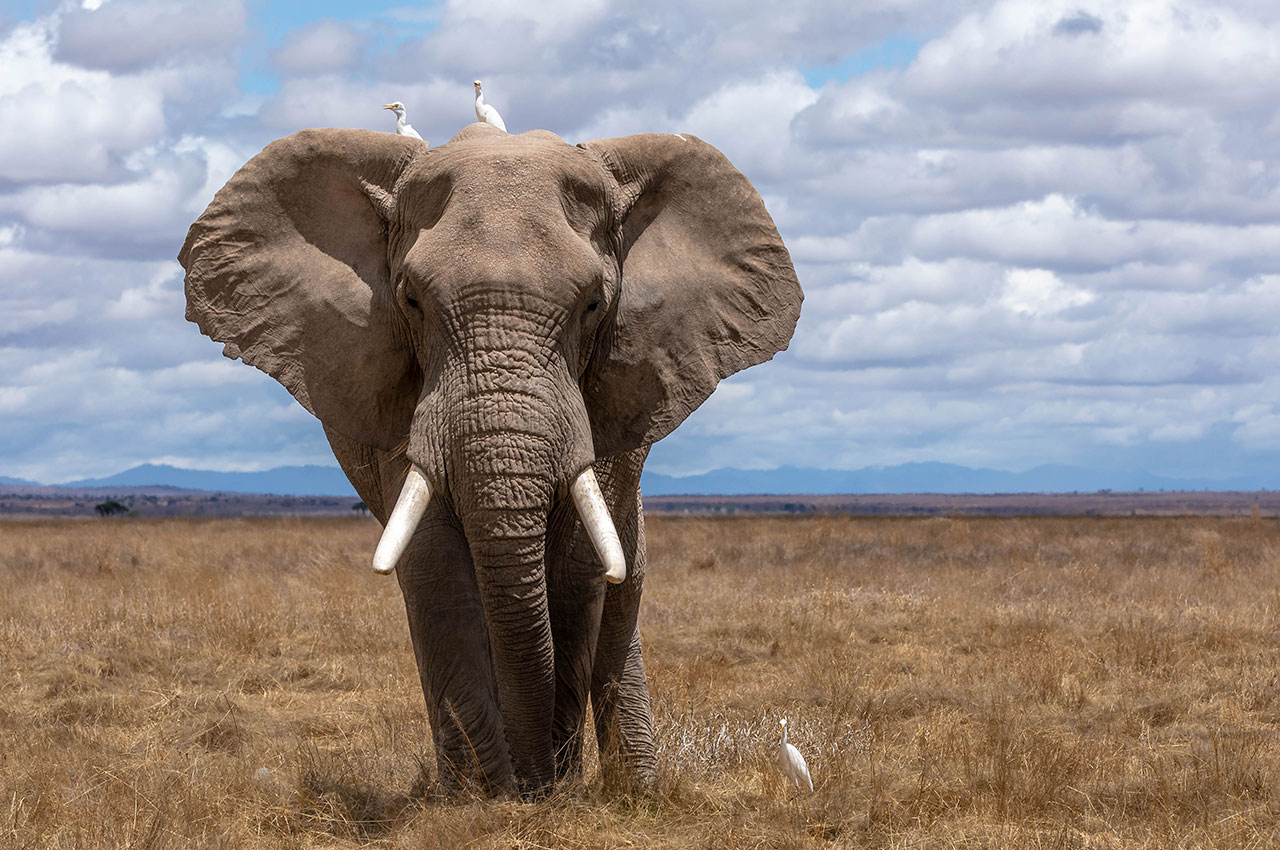Wildlife and International Opportunities
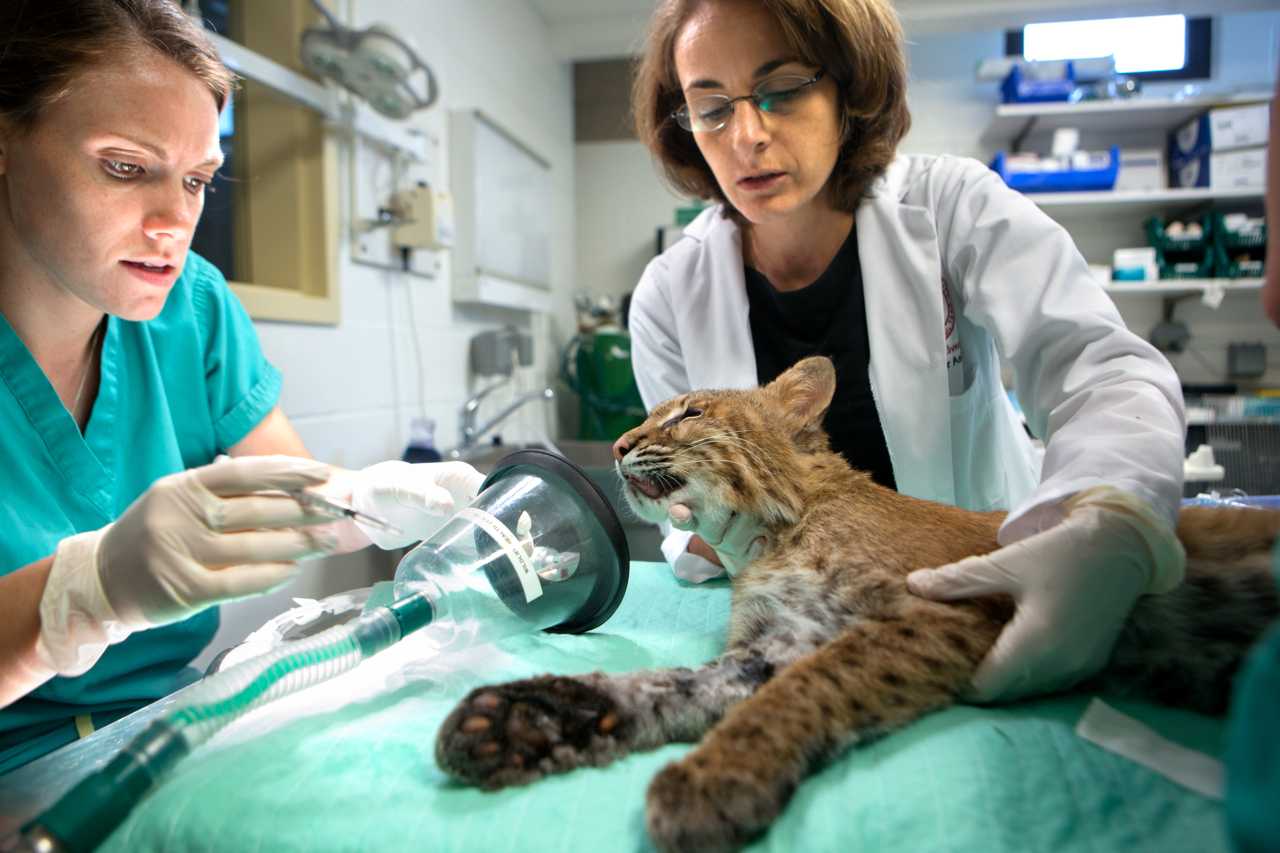
Janet L. Swanson Wildlife Hospital
The Janet L. Swanson Wildlife Hospital provides veterinary care for over 2,000 ill or injured native wild animals each year, with the goal of releasing them back to the wild.
In this unique environment, students can both develop their skills and learn about the many facets of wildlife health.
First-, second- and third-year students can learn about common wildlife diseases and begin to develop clinical reasoning and physical examination skills, while fourth-year students have an immersive hands-on experience during the wildlife medicine clinical rotation.
With a strong research program in wildlife health, we advance the field and offer students cutting-edge training.
We take students out of their comfort zone and challenge them to apply basic veterinary knowledge to very different cases. As a student, you are encouraged to develop and stretch your skills in a safe and supportive environment, where you will likely hear “You may have never seen or done this before, but let’s work together to come up with a plan.”
All animals deserve exceptional and compassionate veterinary care, whether domesticated or wild. At Cornell, the tremendous education veterinary students receive is transferrable to all species.
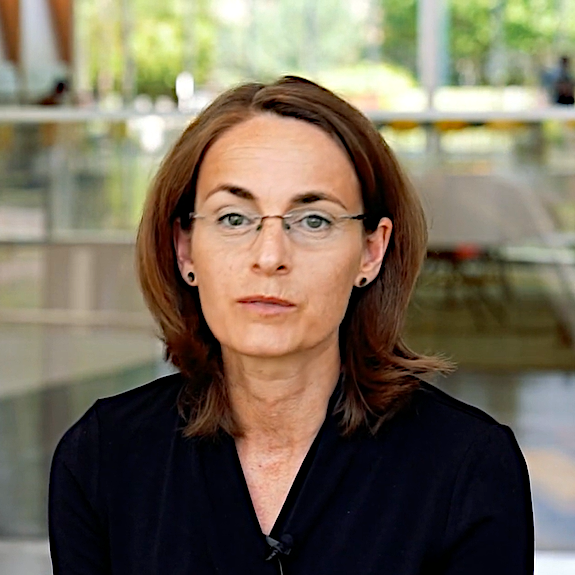
Expanding Horizons
The Expanding Horizons Program offers Cornell veterinary students the opportunity to experience veterinary medicine and conduct independent research projects in a developing nation for six to 10 weeks.
Student opportunities can range from field research to wildlife rehabilitation, from small animal clinical practice to working with local farmers to improve production.
Our students have done projects across the globe, from Ecuador to Kyrgyzstan, from Ghana to Vietnam.
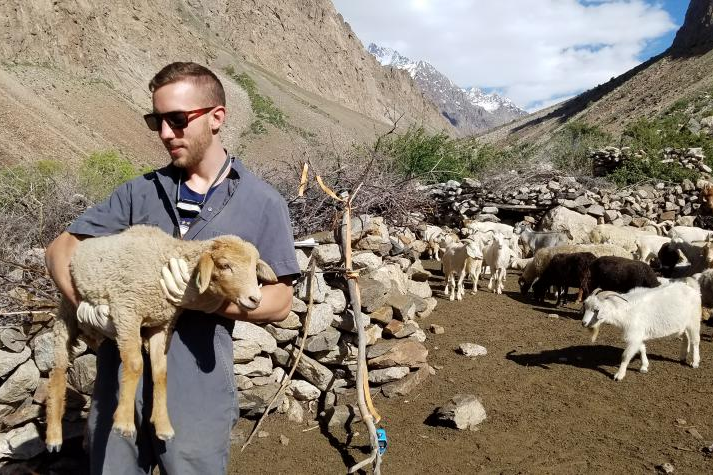
Cornell K. Lisa Yang Center for Wildlife Health
With its team of top wildlife and ecosystem health experts, the Cornell K. Lisa Yang Center for Wildlife Health promotes environmental stewardship and capacity-building for sustainable change around the globe to achieve real-world conservation outcomes.
Our Student Support Fund supports Cornell veterinary students with wildlife health interests to participate in off-campus experiences involving free-ranging or captive wildlife.
Students can also undertake on-campus research projects and receive support to present their work at relevant professional conferences.
We want these programs to foster students’ internal reflection and self-awareness in the context of being global citizens. We want Cornell students to understand the importance of using veterinary medicine to really help people, animals and the environment that sustains us all.
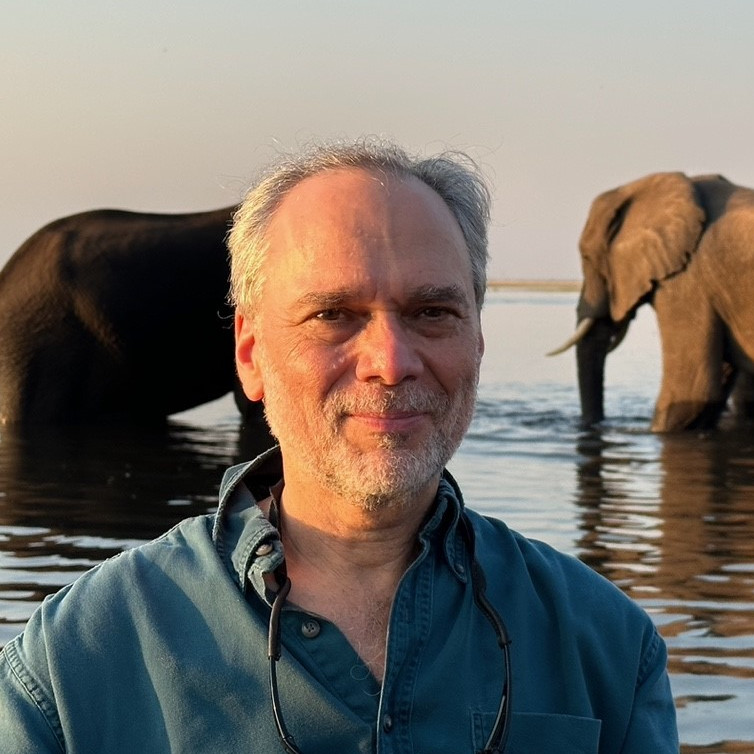
AQUAVET
Veterinarians are increasingly needed to contribute to the health and welfare of the inhabitants of the aquatic world. Excessive harvesting, pollution and infectious diseases have had devastating effects on many freshwater and marine species.
AQUAVET is the world’s premier training program for aspiring aquatic veterinarians.
The biomedical skills used to improve health and increase productivity among terrestrial animals can be applied to aquatic animals as well — to support biodiversity conservation and globally important food systems.
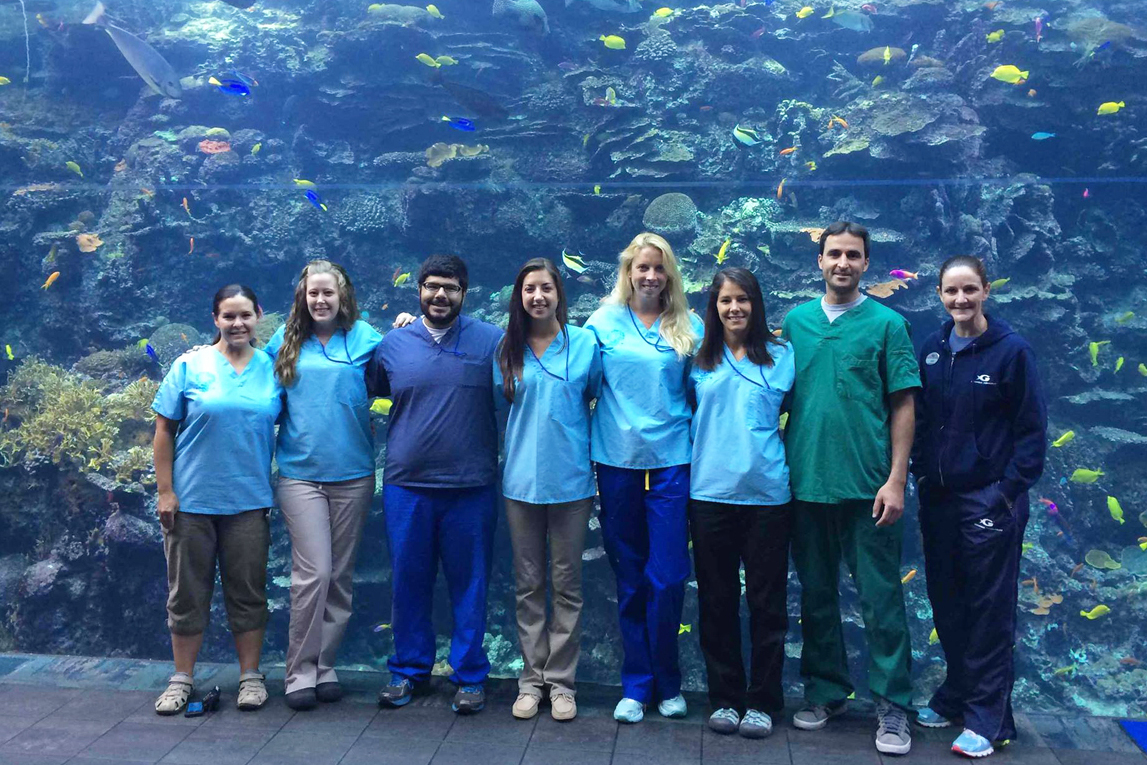
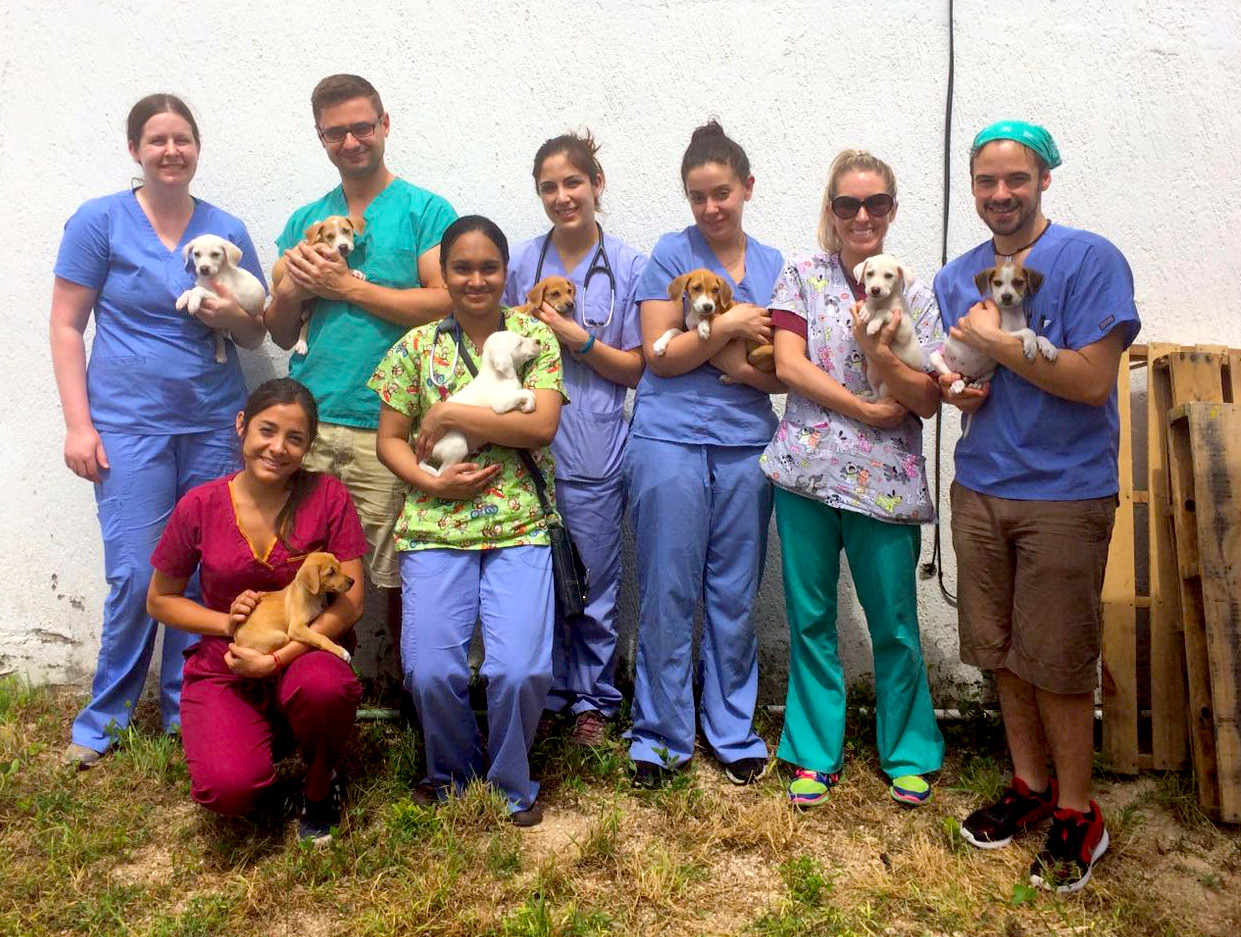
FARVets
This group organizes projects abroad to assist local animal welfare organizations with basic veterinary care, animal welfare awareness and by holding sterilization surgery clinics.
Students typically spend a week during which they help with physical examinations, vaccinations, parasite control and anesthesia. They participate in spay and neuter procedures and monitor patient recovery.
Countries visited have included Mexico, Grenada, Costa Rica and beyond.



